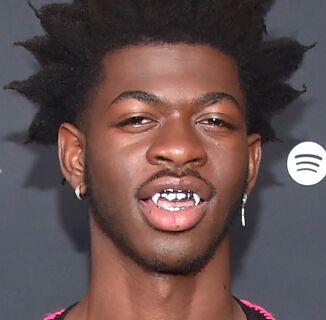In recent years, Kanye West has made headlines for all of the wrong reasons. From his public debacle with Beyoncé’s husband to him “definitely” running for president in 2020 to his recent statements on slavery being a choice and to his fascinating solidarity with Donald Trump, we are witnessing a publicity stunt or a meltdown – or both. What’s happening has many of us questioning: where’s the old Kanye?
It isn’t that Kanye has never made problematic statements before, but lately, it’s all he seems to do. To be sure, this is not about Kanye as much as it’s about how people have quickly labeled him “mentally ill” and then who dangerously use his mental health as an immediate justification for his actions.
Kanye’s mom, Donda West, died on November 10, 2007 and for the past ten years people have often allowed him to escape harm and accountability. Even without knowing the mental state of Kanye, any of us can search the Internet and see people offering prayers and/or saying “his mama died and he ain’t been the same” because we have minimalized his actions to someone experiencing particular mental health concerns. In other words, we have given him repeated chances to perfect his abusive behaviors
When you love someone, you do not let them get away with violence
Oftentimes, when people especially celebrities or those who make headlines do what we often consider “bad acts,” we correlate or occasionally draw a causal link to mental illnesses. We do this even if they have not been clinically diagnosed or have accepted it for themselves. It’s because we want to provide a reason for the actions and then categorically create a grouping to explain the erratic or problematic behavior. Instead of helping those experiencing a mental illness, without more, we tend to perpetuate stereotypes, remove accountability, and connect those problematic behaviors to that mental illness.
While it’s important not to make those experiencing mental illness the scapegoat for violence and dangerous behaviors, it’s also important to discuss accountability.
I was physically assaulted by my ex-boyfriend for the first time in late-2015. I promised myself the next time would be the last time it wasn’t. While dating, he informed me that he was diagnosed with Bipolar II Disorder and that his moods would often change from low to high, and sometimes rather quickly and that he would try to keep it under control (without medication). What I did not expect was a physical blow in public that demanded my silence.
Though he likely attempted to control his reactions, it was those other moments that were more than I could bear. Often resulting in mental, emotional, and physical harm; the screaming, depression, and physical fighting forced me to have a much-needed check in about harm, healing, and accountability, and what that means for everyone but especially LGBTQ people and those who experience intimate partner violence.
Make no mistake: there is no causal link between violence and mental illness. Nonetheless, I did not know what to do in light of dating someone experiencing multiple episodes, which resulted in stress and fear for us both. Quite frankly, I often remained silent because I did not want his Bipolar Disorder to be used as a scapegoat for the obvious harm being caused, but I also knew not holding him accountable for his actions was wrong.
There are obvious reasons people stay silent about intimate partner violence in LGBTQ communities despite it not being too uncommon. In a homophobic society, many people won’t empathize with violence in same-gender loving relationships – either because we have asked for it or people have otherwise deemed our fighting as “equal.” Both are wrong and flies in the face of statistics.
Accountability is indeed about having people account for their harm, not to persecute, prosecute, and punish. I was not offered that space.
In a 2015 Williams Institute study, between 19.2 percent and 39 percent of men who have sex with men (and may not identify as gay or bisexual), gay men, and bisexual men reported experiencing intimate partner violence in their lifetimes and between 11.8 percent and 25.5 percent reported experiencing IPV in the past year. This is merely a sampling and the numbers are estimated to be much higher. So, not only do we need to give space to those who may experience harm as a result of mental illness, we must also not stigmatize or discriminate because of it.
We have not come to terms with accountability. In “I don’t want as many “chances” to f*ck up as Kanye,” writer Hari Ziyad said, “When you love someone, you do not let them get away with violence. You do not let them claim to be something their actions do not prove. You may refuse to dispose of them, but you won’t let them make you their garbage can either. You offer them space and that offer may remain for all of eternity, but only if they show they can and will honor that space with you. This is what accountability should mean.” Accountability is indeed about having people account for their harm, not to persecute, prosecute, and punish. I was not offered that space.
We know there are people who have automatically deduced Kanye’s actions to mental illness and lack of treatment, including therapy. Regardless, there is a series of thoughts that dismiss possible mental health experiences because those actions can be rooted within larger narratives of sexism, misogyny, and patriarchy. Both are right, both are wrong; everyone loses, but particularly those who experience mental illnesses. We must hold someone accountable with love, compassion, and positive support systems but everyone must eventually account for the harm they have caused others.
We are not doing anyone favors by believing a person experiencing mental illness can simply continue causing others’ harm, and we sure are not helping by merely only offering prayer as a solution.
Help make sure LGBTQ+ stories are being told...
We can't rely on mainstream media to tell our stories. That's why we don't lock our articles behind a paywall. Will you support our mission with a contribution today?
Cancel anytime · Proudly LGBTQ+ owned and operated
Read More in Culture
The Latest on INTO
Subscribe to get a twice-weekly dose of queer news, updates, and insights from the INTO team.
in Your Inbox















